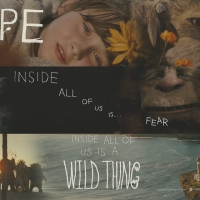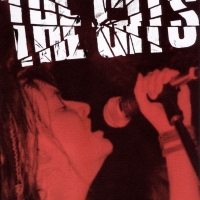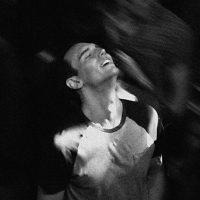Writer and director Joon-ho Bong’s fantasy-drama Okja illustrates an ambitious take on our current climate’s food industry and sustainability challenges. Eccentric Lucy Mirando (Tilda Swinton), CEO of family-owned conglomorate Mirando Corporations, has created 26 genetically modified “superpigs” sent around the globe for lead farmers to raise in environmentally-friendly conditions, under the pretense that these animals will feed the earth’s growing population in a conservative fashion. For ten years Okja has been raised in South Korea’s luscious farmland and remained content, forming a tight-knit family with young Mija (Seo-Hyun Ahn) and her grandfather, Hee-Bong Byun. Their peace comes to an abrupt halt when Dr. Johnny (Jake Gyllenhaal) is sent to retrieve Okja from her familiar surroundings to participate in an extreme beauty pageant in Manhattan, New York, eventually to be packaged to consumers in a slaughterhouse. Not one to surrender easily, Mija ventures on a path to New York in order to bring back Okja before she’s churned into lifeless meat products. Along the way she meets Jay (Paul Dano), the leader of the Animal Liberation Front (ALF), whose main objective is to peacefully set animals free. While Joon-ho Bong’s film doesn’t come across as preachy or overly sentimental, Okja’s latter half loses its stamina, feeling overly chaotic and muddled in its message.
Seo-Hyun Ahn’s performance as Mija and caretaker to Okja remains a stable and outstanding force throughout the course of the film. A half manatee, half hippopotamus-looking land mammal, Joon-ho Bong and VFX supervisor Erik De Boer succeed in creating a convincingly animated and realistic creature, capable of foresight and emotional depth. Unwavering in her actions and commitment to protect Okja from becoming slaughterhouse meat, the young girl and her ally become a dynamic and compelling force. Drawing forth comparisons to Studio Ghibli’s Totoro and Satsuki’s companionship, Mija and Okja form a precious bond that only strengthens throughout the hardships they inevitably face.
Mija and Okja present a blunt contrast to Lucy’s greed and excessive demands and Dr. Johnny’s outrageous and exaggerated behavior, which at times feels intensely out of place or awkwardly comical. Shrieking rather than speaking for nearly every scene he appears in, Gyllenhaal’s character is blown to bombastic proportions. Recognized by the public as a TV personality, Dr. Johnny unleashes his petty and childish thoughts as soon as we’re introduced to him in Korea, concerned with little else aside from his well-being and appearance. Lucy’s near washed out features and constant glitz are shown juxtaposed to Korea’s peaceful and rural landscape, luxurious in its natural state compared to Mirando Corporations’ phoniness and superficial image. When we’re introduced to The Animal Liberation Front’s members they’re initially seen as comrades to Mija’s mission, however intentions between their members clash and the hypocrisy within their group makes itself imminent as they race to save Okja. Joon-ho Bong’s film does toy with some interesting elements and relationships, however its excessiveness feels in stark conflict with what Okja’s message aspires to communicate to its audience.





